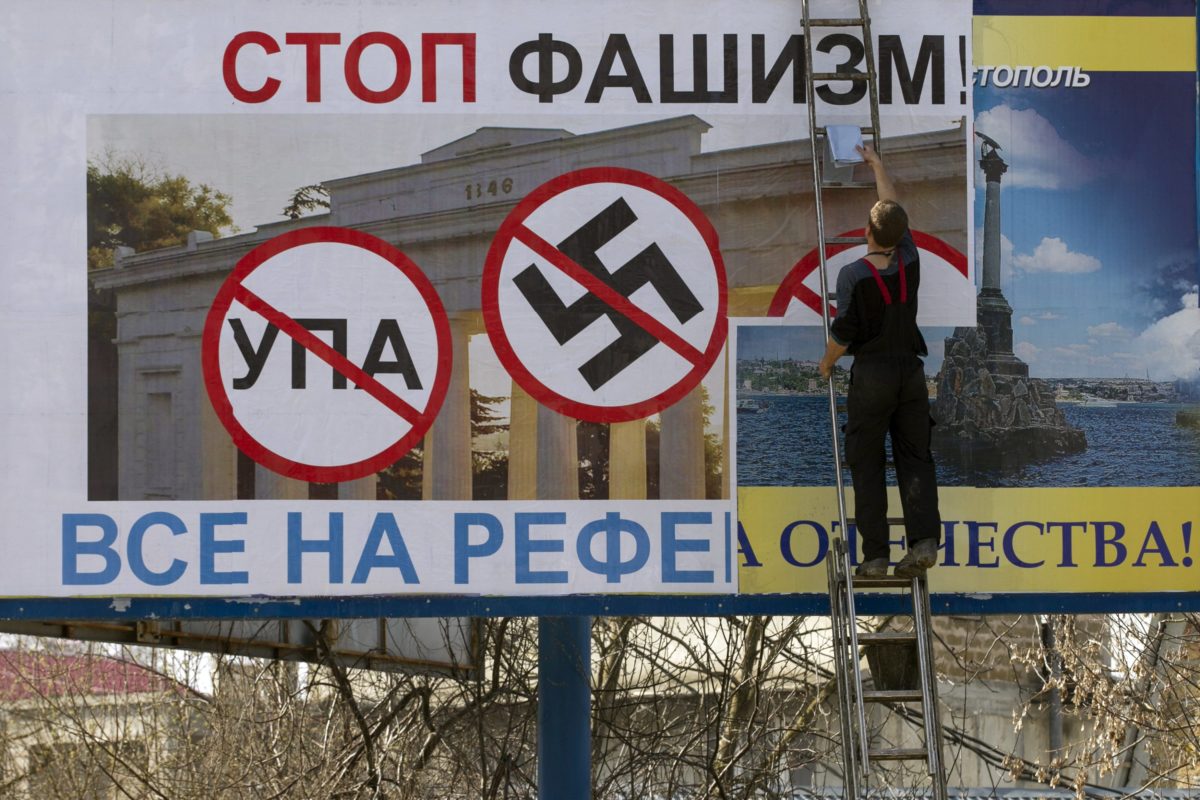
Each day since it began, two young women, Oksana Domaniuk and Elina Boichuk have watched their country enter into ruin.
“I am desperate, like everyone in Ukraine,” said Domaniuk.
Domaniuk, 22, is a university student in Ostroh, a small city in the Ukrainian region of Rivne Oblast three hours west of Kiev. She is involved with ongoing demonstrations in Ostroh and the city of Vinnytsia.
The demonstrations within the two cities are peaceful. It is a far cry from the fury of Kiev, the same fury that keeps Domaniuk away from Independence Square.
“My family will not let me go,” said Domaniuk. “Kiev is ruined and it is too dangerous.”
Every afternoon at 4:00 p.m., people in Ostroh gather in the main square to hear news from Kiev.
“People are talking about fighting, but many of us are afraid of the possibility of war. People are already signing up to fight now,” said Domaniuk. “With Russian soldiers in our territory, I worry Russia just wants to start a civil war in Ukraine.”
For Domaniuk’s former schoolmate, things are much different.
“The first day I got there with a friend of mine and at the entrance they asked him if he was afraid of blood. And receiving a ‘No’ they just dragged him to opposite direction and we met each other a few hours after.”
Elina Boichuk, 21, is a volunteer at a medical station at Independence Square in Kiev.
“He had the whitest face I’ve ever seen,” said Boichuk.
Out of the furnace that is Kiev, comes a vile smoke.
“The majority of them had their eyes burned with tear grenades that exploded too close to their faces and had open fractures with bones sticking out.”
Days later, Boichuk met a women operating the elevator in a building next to the medical site. She had also been using the elevator to transport the injured.
“She was an astonishing and very caring woman,” Boichuk said. “She had worked in the building for ten years and told me that she had seen more dead people in that elevator than ever in her life.
“She was awake doing her duties for twenty-plus hours when we suggested her to go and have a rest. She told me that she couldn’t sleep when we are on the way to catching freedom by its tail.”
The two spent the night together swapping shifts. When one would attend the wounded, the other would get food to last them the night.
Boichuk believes the conflict has spurred a change in the minds of Ukrainians.
“We have this way of behaving sometimes; when you hear someone screaming for help and you’ll go to check the situation in one case out of 10, so these sparks of wakened consciousness turned into changing the minds of people in a totally new direction in a short period of time.”
People from across Ukraine are sending aid to Kiev and Crimea — even offering their homes for those fleeing the Crimean peninsula.
“These are things women can actually do, since we’re not really welcomed on the war field,” said Boichuk. “My family has also been helping financially and also by donating clothes, food and medicine to Maidan.”
Back in Ostroh, Domaniuk sees VKontakte, the Russian equivalent to Facebook, has become inundated by pro-Russian propaganda.
“They say things like, ‘Fall on your knees before Russia. Russia is your mother, you have played this game that you are independent and that’s enough. Come back, we should be together.’
“It is really offensive for us because we really fight for our freedom,” said Domaniuk.
Still, for the two women, there is no going back. Boichuk is certain within the acts of solidarity she has witnessed – acts of everyday people— lie signs of a promising future for Ukraine.
“Even doing minor things as helping doctors to transport patients between floors is already a contribution to this better future.”
Domaniuk, through the growing threat of Russian annexation, maintains hope of a united Ukraine built on the demands of the people.
“People have sacrificed their lives for new government and a new future for our country. We want new government and for our country to be sovereign— not divided.”
